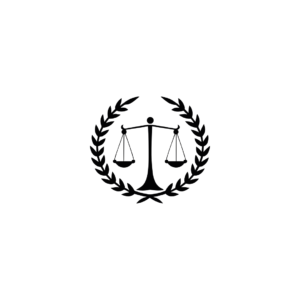Description
Overview of Post Graduate Diploma in International Law
A Post Graduate Diploma in International Law is a specialized program that focuses on the legal frameworks, principles, and practices governing international relations. This program provides students with a comprehensive understanding of various aspects of international law, including treaties, human rights laws, trade regulations, and the laws of war. Given the increasing interconnectedness of nations and global issues, expertise in international law is crucial for professionals working in diplomacy, international organizations, NGOs, and related fields.
Curriculum of Post Graduate Diploma in International Law
While specific curricula may vary by institution, a typical Post Graduate Diploma in International Law often includes the following core subjects:
Introduction to International Law
Overview of key concepts, sources of international law, and historical evolution.
Understanding the roles of state sovereignty and international organizations.
International Treaties and Agreements
Examination of how treaties are drafted, ratified, and enforced.
Analysis of significant international treaties and their implications.
Law of Armed Conflict and Humanitarian Law
Study of the legal frameworks governing armed conflicts, including the Geneva Conventions.
Discussion on the protection of civilians and combatants during war.
International Human Rights Law
Exploration of international human rights instruments (e.g., ICCPR, ICESCR) and their enforcement mechanisms.
Examination of case studies related to human rights violations and accountability.
International Trade Law
Understanding the legal framework governing international trade, including the World Trade Organization (WTO) agreements.
Discussion on trade disputes and the role of trade policies.
International Environmental Law
Overview of legal frameworks addressing global environmental issues, such as climate change and biodiversity.
Examination of international treaties aimed at environmental protection.
Diplomatic Law and International Relations
Study of the principles governing diplomatic relations and immunities.
Understanding the role of diplomacy in international law.
Dispute Resolution in International Law
Examination of mechanisms for resolving international disputes, including arbitration and adjudication in international courts.
Analysis of the International Court of Justice (ICJ) and its decisions.
International Criminal Law
Overview of the legal framework governing international crimes, including genocide, war crimes, and crimes against humanity.
Discussion on the role of the International Criminal Court (ICC) and other tribunals.
Global Governance and International Organizations
Understanding the role and functions of major international organizations (e.g., United Nations, International Monetary Fund).
Exploration of the relationship between international law and global governance.
Contemporary Issues in International Law
Discussion on current trends and challenges in international law, such as cybersecurity, terrorism, and the regulation of emerging technologies.
Research and Writing in International Law
Development of research skills specific to international law, including legal writing, analysis, and presentation.
Career Opportunities After Completing PG Diploma in International Law
Graduates of a Post Graduate Diploma in International Law can pursue various career paths, including:
International Lawyer
Practicing law in international contexts, advising clients on international law issues related to trade, human rights, or criminal law.
Diplomat or Foreign Service Officer
Representing a country in international relations and negotiations, dealing with foreign policy and international agreements.
Legal Advisor for NGOs
Working with non-governmental organizations focused on human rights, environmental protection, or humanitarian aid.
International Organization Staff
Working for organizations such as the United Nations, World Bank, or regional bodies, contributing to global governance and policy-making.
Policy Analyst
Analyzing international issues for government agencies, think tanks, or international organizations, providing insights for policy development.
Academia or Researcher
Teaching international law at universities or engaging in research on global legal issues and developments.
International Trade Specialist
Advising businesses on international trade regulations, compliance, and dispute resolution.
Human Rights Advocate
Advocating for human rights protections and working to address violations at local, national, or international levels.
Consultant on International Law Issues
Offering expertise to organizations on matters such as treaty compliance, dispute resolution, or human rights.
Arbitrator or Mediator in International Disputes
Facilitating the resolution of international disputes through arbitration or mediation processes.
Conclusion
A Post Graduate Diploma in International Law equips students with the knowledge and skills necessary to navigate the complexities of international legal systems and global issues. This program is ideal for legal professionals, diplomats, and anyone interested in the fields of international relations and global governance. If you have specific questions about institutions offering this diploma, the application process, or further career guidance, feel free to ask!









